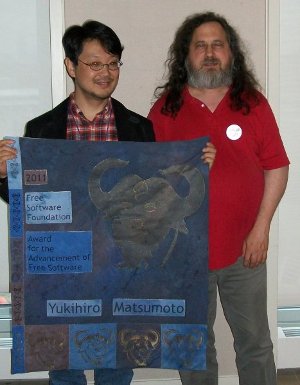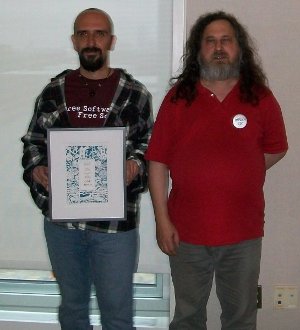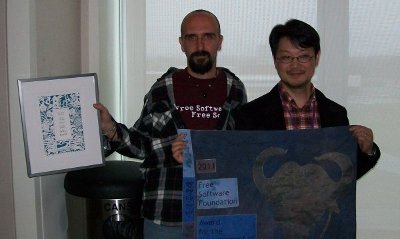Coalition against Digital Restrictions Management ready to go for May 4th Day Against DRM
samedi 5 mai 2012 à 00:08Matt Lee, campaigns manager of Defective by Design, said, "DRM is a growing problem in the area of ebooks, where people have had their books restricted so they can't freely loan, re-sell or donate them, read them without being tracked, or move them to a new device without re-purchasing all of them. They've even had their ebooks deleted by companies without their permission."
As part of the day, people fed up with DRM are holding protest and awareness events in Cincinnati, Orlando, Amherst, San Francisco, Boston, Madrid, Rome, Manchester, Nagoya (Japan), and Aveiro (Portugal). More events are still being added at http://libreplanet.org/wiki/Group:DefectiveByDesign/Day_Against_DRM_2012.
Supporters are also taking action online, displaying the campaign's banner and using the opportunity to blog about their frustrations with DRM.
Notable science fiction author and editor of the influential BoingBoing.net blog, Cory Doctorow said, "As an author, I understand that DRM doesn't do squat to protect my interests. As a businessperson, I understand that DRM usurps my commercial relationships with my customers and hands them to DRM vendors."
Sanders Kleinfeld, author of HTML5 for publishers said in an interview with O'Reilly Media, "What's disappointing right now is that Amazon is very set on their Mobi format for their Kindle device, Apple has made strides away from EPUB 3 with their latest iBooks 2.0 and iBooks Author. I think vendors that make these devices are interested in maintaining that lock-in for customers."
Defective by Design has held previous international days against DRM in 2006, 2010 and 2011, focusing on use of DRM by Microsoft, Apple, Amazon, and the RIAA. Defective by Design is a campaign of the Free Software Foundation.
Information on how to participate can be found at http://dayagainstdrm.org. Pictures, videos, and accounts will be posted afterward at http://defectivebydesign.org.
About the Free Software Foundation
The Free Software Foundation, founded in 1985, is dedicated to promoting computer users' right to use, study, copy, modify, and redistribute computer programs. The FSF promotes the development and use of free (as in freedom) software -- particularly the GNU operating system and its GNU/Linux variants -- and free documentation for free software. The FSF also helps to spread awareness of the ethical and political issues of freedom in the use of software, and its Web sites, located at fsf.org and gnu.org, are an important source of information about GNU/Linux. Donations to support the FSF's work can be made at http://donate.fsf.org. Its headquarters are in Boston, MA, USA.
Media Contacts
Matt Lee
Campaigns Manager
Free Software Foundation
+1-617-500-3284
campaigns@fsf.org


